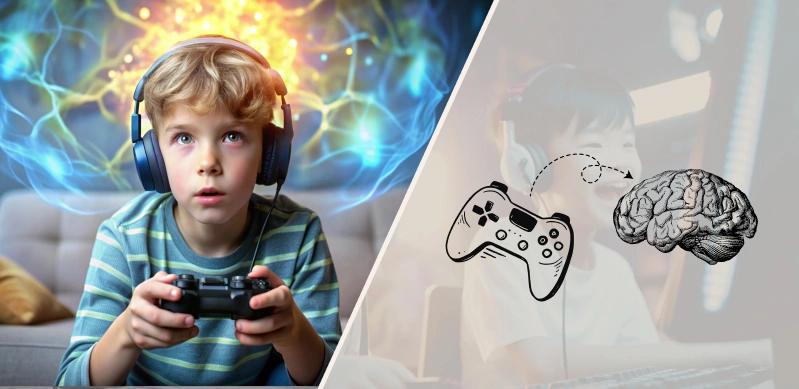Gaming has come a long way from simple pixels and arcade machines. In 2025, it’s a global culture — connecting millions across continents, building communities, and even shaping careers. But as the gaming world grows, so does the conversation about mental health.
Does gaming help or hurt your mind? The answer isn’t black and white. Let’s explore the impact of gaming on mental well-being — and how to play in a way that benefits your brain.
Gaming and Mental Health: The Double-Edged Sword
Recent studies show that gaming can both support and harm mental health depending on how and why you play.
Positive effects:
- Stress relief: Games provide an escape from reality, helping players unwind after a tough day.
- Cognitive benefits: Strategy, memory, and hand-eye coordination can improve through regular play.
- Social connection: Multiplayer and online games reduce isolation, especially for people with social anxiety.
Negative effects:
- Addiction and overuse: Long gaming hours can disrupt sleep, relationships, and productivity.
- Toxic environments: Competitive or hostile game communities can contribute to anxiety or low self-esteem.
- Escapism over healing: Using games to avoid real-life issues can delay emotional growth or support.
Hot Topic: Are Games Like Stardew Valley and Animal Crossing the New Therapy?
“Cozy games” — calm, non-competitive titles focused on creativity and progress — have become mental health lifelines. During tough times (like the pandemic or burnout era), millions turned to games with soothing aesthetics and gentle gameplay to find peace.
Games like Stardew Valley, Spiritfarer, or Kind Words don’t just entertain — they offer emotional regulation, routine, and a safe place to feel in control. Mental health professionals are even exploring therapeutic gaming as part of treatment plans.
Healthy Gaming Habits: Tips for a Balanced Mind
If gaming is part of your life, here’s how to keep it healthy and empowering:
1. Set Time Limits
Use apps or built-in features to track screen time. Balance gaming with outdoor activity, work, and rest.
2. Play With Purpose
Ask yourself: Why am I playing? If it’s for joy, connection, or learning, great. If it’s to avoid something difficult, it might be time to talk to someone about it.
3. Choose Uplifting Communities
Join Discords or forums that focus on kindness and shared passion. Leave toxic spaces behind — your mental peace is more important than XP.
4. Take Physical Breaks
Every hour, stand up, stretch, drink water. Your body fuels your mind, and both need breaks to stay sharp.
5. Talk About It
Gaming can be emotional — especially story-driven or competitive games. Don’t hesitate to process what you feel with friends or professionals.
Final Word: You’re Not Just a Player — You’re a Person
Gaming is a powerful tool. Like any tool, it depends on how you use it. When approached mindfully, it can boost mental health, create lasting friendships, and even inspire personal growth.
So play smart, play kind, and most importantly — don’t forget to take care of the player behind the screen.

